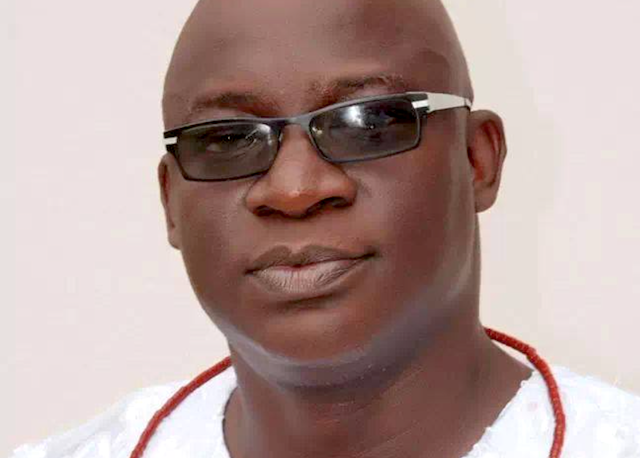The sun shone recently on Kenneth Aguba, a Nollywood veteran and, in fact, one of the pioneers of Nollywood, according to online sources. He had been homeless for a while until recently when a generous man of God, Pastor Chibuzor Chinyere, heard his story. Aguba is going through a process of rehabilitation right now. A house, new clothing and other essentials of life have been given to him. His story is not surprising to me. Even in Hollywood, the biggest movie industry in the world, if you do not reinvent yourself, you fall by the wayside while the industry moves on. Some former Hollywood celebrities, who earned millions of dollars in their prime, are currently broke. Some have taken regular employments. Some were at some point homeless.
You can blame their predicament on poor financial management and planning. Aguba’s case is different. He featured in over 80 movies, according to online sources and earned an average of N5,000 per movie where some fellow actors were probably paid millions. That is how the movie industry worldwide works. That is why movie actors work hard and hire agencies to package them and keep their stock high. But his other revelations revealed the beast in some of us. He said many producers did not even pay him the N5,000 stipend. One told him to come to Jos to collect his N5,000 stipend. Couldn’t that money have been transferred to him? The producer never intended to pay him and that was cruel.
But my interest is not Nollywood. I am not even competent to write on it because I scarcely watch films, foreign or local. I spent my spare time abroad watching Nigerian movies on Neflix the last time I travelled and that was the first time in so many years I spent hours watching films. I was shocked by the quality of the films. The industry has grown and undoubtedly number one in Africa.
Back to Aguba, as part of the rehabilitation, a wife is being organised for him and that is the reason he is the topic of today. I have always maintained two essential criteria before getting married: a roof over your head (rented or owned) and a regular source of income. His benefactor has already donated a house to him. He has also promised to set him up to give him financial stability. Both criteria will then be fulfilled. He is a low-earning actor. Five thousand naira per movie is not a sustainable and regular income. He could not feed himself when he was alone, so he certainly needs a good plan to be able to cater for his family.
But I am not comfortable with choosing a wife for him. Ideally choosing a spouse is his prerogative. Someone of his age should know what he wants, but he certainly does not. He wants to marry a virgin. It is not just a virgin, but a virgin from Israel. Do you pick virgins from the streets of Israel? Who is going to foot the bill for the air ticket and marriage? The benefactor only promised to foot the bill if he marries one of the widows in his church and he has gone ahead to arrange some of them for him to choose from. He needs a matured woman whose libido is going downhill like his and can be a good companion
Talking about virgins, it is the desire of every man to be the one that deflowered his wife. Unfortunately, the same men have deflowered most of these single girls. Consequently, I ask Aguba, in your active sexual years did you deflower any girl? If you did, you have no right to make virginity a criterion. I read that Aguba is in his 70s. Many women in their 30s upwards have lost their virginity; is Aguba targeting virgins who are in their 20s and below? Does he want to speed his journey to the grave? I am moving towards 60 and know where my power is now and where it was 30 years ago. I regularly with my peers. Some of these guys boasting exaggerate their sexual prowess. There was a man in his 50s, who always boasted about his sexual prowess. One crazy girl decided to investigate. She spent the night with the man. She said the man didn’t touch her throughout the night. By the time he hit the bed, he slept off and only woke up the next morning. He simply gave the girl money and dashed her hope of experiencing his sexual prowess. In his prime, it is the girl who would have begged him to allow her sleep a little. And he would kept vigil until she woke up for him to continue from where he stopped
The many adverts you see in media are misleading. The sex enhancing drugs have adverse implications for men with certain health conditions. What some men will take and go about their “work,” others will take and have heart attack or other complications. Man, know thyself and health conditions. As for Aguba, you are too old for the young girls who are still virgins. What your benefactor suggested is the best option for you. Get a woman in her 30s and above, of child bearing age. The primary reason for marriage is companionship, followed by procreation, not deflowering wives.
Virginity is a virtue that should be promoted, but I do not consider virginity top criterion for choosing a wife. I used to know someone who told me proudly that he deflowered his wife. Consequently, he adored and respected the wife so much. But the wife was a terror and always made the man miserable. She also never failed to remind the husband that she is a virtuous woman.
But what is virtue? Is virginity synonymous with virtue? Moreover, one of the things a man desires most in marriage is peace of mind. Once you have peace of mind, you have a home. Without peace of mind, what you have is a house. In addition, as fulfilling phychologically as being the one that deflowered your wife is, it is only momentary. For some, it took under an hour to deflower their wives. It took a day for others. I heard it took one man days and many trials. Whatever it is, the marriage will last much longer than the time it took to deflower your wife. Many factors are involved in the success of a marriage. Deflowering your wife is not at the top, but it is an honour.




